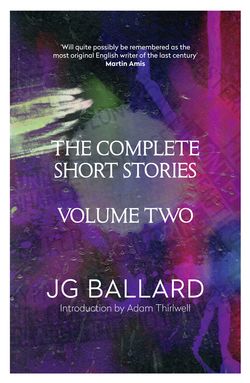Читать книгу The Complete Short Stories: Volume 2 - Adam Thirlwell - Страница 5
Author’s Note
ОглавлениеShort stories are the loose change in the treasury of fiction, easily ignored beside the wealth of novels available, an over-valued currency that often turns out to be counterfeit. At its best, in Borges, Ray Bradbury and Edgar Allan Poe, the short story is coined from precious metal, a glint of gold that will glow for ever in the deep purse of your imagination.
Short stories have always been important to me. I like their snapshot quality, their ability to focus intensely on a single subject. They’re also a useful way of trying out the ideas later developed at novel length. Almost all my novels were first hinted at in short stories, and readers of The Crystal World, Crash and Empire of the Sun will find their seeds germinating somewhere in this collection.
When I started writing, fifty years ago, short stories were immensely popular with readers, and some newspapers printed a new short story every day. Sadly, I think that people at present have lost the knack of reading short stories, a response perhaps to the baggy and long-winded narratives of television serials. Young writers, myself included, have always seen their first novels as a kind of virility test, but so many novels published today would have been better if they had been recast as short stories. Curiously, there are many perfect short stories, but no perfect novels.
The short story still survives, especially in science fiction, which makes the most of its closeness to the folk tale and the parable. Many of the stories in this collection were first published in science fiction magazines, though readers at the time loudly complained that they weren’t science fiction at all.
But I was interested in the real future that I could see approaching, and less in the invented future that science fiction preferred. The future, needless to say, is a dangerous area to enter, heavily mined and with a tendency to turn and bite your ankles as you stride forward. A correspondent recently pointed out to me that the poetry-writing computers in Vermilion Sands are powered by valves. And why don’t all those sleek people living in the future have PCs and pagers?
I could only reply that Vermilion Sands isn’t set in the future at all, but in a kind of visionary present – a description that fits the stories in this book and almost everything else I have written. But oh for a steam-powered computer and a wind-driven television set. Now, there’s an idea for a short story …
J.G. Ballard, 2001
